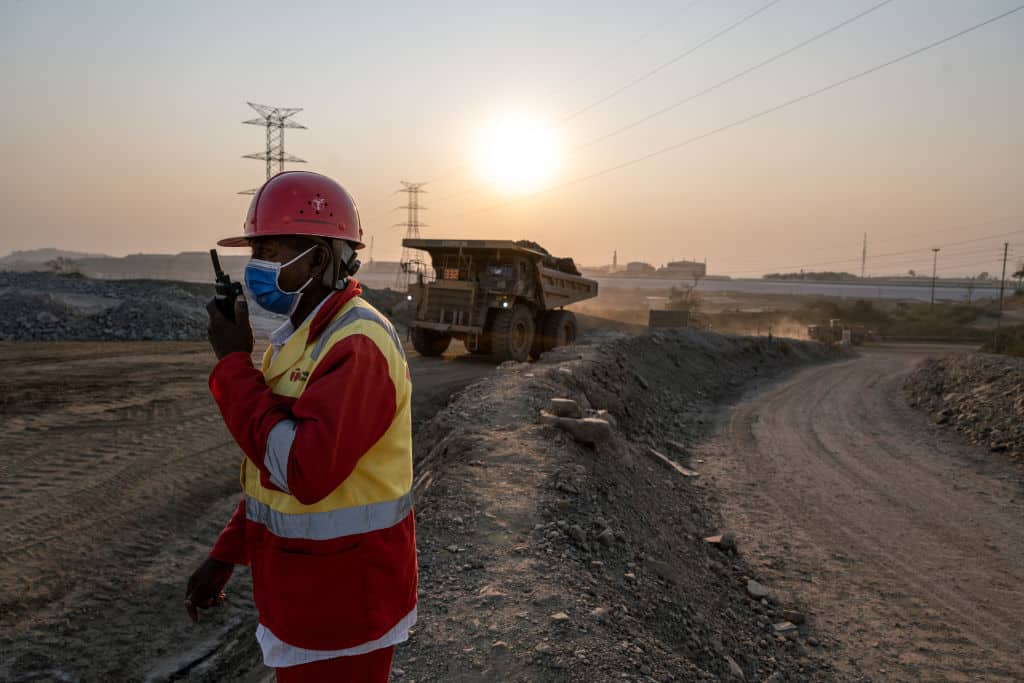True power is living the realization that you are your own healer, hero, leader.” – quoted by Diego Perez
Indeed, success has always been built on that simple principle. The African story of the recent past has belied that. This needs to be regained and reinforced.
I was in Lusaka some weeks ago attending the launch of the Lobito Corridor project; an ambitious rail line brought together for deliverance by the mighty United States (U.S.), the beleaguered European Union, three ambitious African nations and two of Africa’s premier institutions, the Africa Finance Corporation (AFC) and African Development Bank (AfDB).
They unveiled plans to link the copper-rich regions of Zambia and the Democratic Republic of the Congo to the Angolan port of Lobito. A corridor replete with hopes. A smooth trade route from the world’s richest copper belt to the Atlantic Ocean to facilitate the transportation essential in the region, fostering business and trade.
This is in perfect harmony with Washington’s increased soft-power strategy reflecting a broader geopolitical intent to strengthen ties with Africa.
Loading...
Not that this is altruistic though. The global clean energy transition requires significant amounts of critical minerals vital to the manufacturing of solar panels, wind turbines, electric vehicles, batteries etc. And they are crucially essential in several applications of the defence, ICT and pharmaceutical industries.
Add to that the U.S.’s Inflation Reduction Act and the pressure to bring manufacturing back to American shores.
To make America great again will need raw materials from across the Atlantic. Interestingly, the accelerated pace of the transition will require six times more mineral inputs by 2040.
But the net-zero objectives of the Global North will not be achieved without Africa’s green minerals.
Africa holds substantial reserves of bauxite, chromium, cobalt, copper, gold, iron, lithium, manganese, platinum, uranium and more.
Thus, the great race ahead; strap on your belts for the ride.
Yet, China’s present dominance is all-pervading at the moment; positioned as they are with its longer history and sheer size of investments in the core sectors in Africa.
Overall, China has spent more than a trillion dollars in projects to secure the supply of key resources.
Therein lies the ‘once-in-a- lifetime’ opportunity.
Usually, when elephants fight, the grass suffers.
This time around, the African savannah holds the strings to the entertainment ahead.
For African leaders, the question is less about the U.S. or China but more about what Africa can negotiate out of its resource advantage.
Africa must capitalize on its mineral endowments to drive transformative sustainable growth, economic diversification, and local and regional development through value-added processing and manufacturing; it must optimize the resource value to underpin productive transformation, integration into global trade systems and development of local industries.
Sustainable mining as a catalyst for the local procurement of goods and services, the shared use of infrastructure as well as an anchor for renewable energy development is a fair aspiration.
Yet it is crucial to ensure that all this does not come at the detriment of African communities, bearing the brunt of vested interests, pollution, and environmental damage.
A substantial amount of critical minerals is to be found in areas of rich biodiversity, fragility, and conflict, as well as lands traditionally belonging to indigenous peoples.
But events have conspired in Africa’s favor.
We hold the key to solving significant global challenges.
Hence, we should be agnostic and seek partners that will drive our economic objectives as equals in the global fight for equity and prosperity.
African institutions such as the AFC are at the forefront of embedding these priorities into policies.
The continued success will hinge on: a) balancing the criticality of access to mineral resources with the African perspective on environmental and social risks; b) improved infrastructure for local value addition, refining, processing, and developing local downstream industries; and c) inspiring international cooperation to shift from historically-exploitive, extractive and export-driven models into sustainable investments, technology transfer, capacity-building and financing models that lift the continent meaningfully.
If mining fails to be a catalyst for sustainable development supporting renewable power generation, local procurement and infrastructure, we will have failed.
The Lobito Corridor promises to be that potent example where the corridors of power ensured that it’s not another rail line to transport our riches but will enrich us, the people on the continent, in its wake. And thus, help to solve the world’s problems while serving its own people.
Diplomacy and negotiations change. All of that needs the ‘self-belief’ that it’s our tryst with our destiny and we have to run with it ourselves.
Loading...
